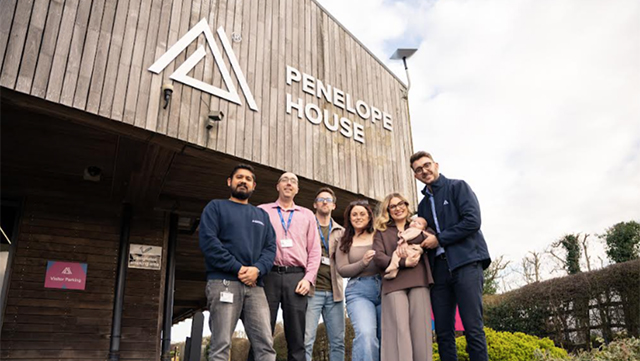If London has lost some of its lustre as a financial hub after Brexit, someone forgot to tell the team at Grit Real Estate Income Group.
In recent months the real estate investment company, which invests in property across Africa, has doubled down on its listing in the UK, making it the company’s sole stock quote and joining the premium listing segment of the London Stock Exchange.
The goal? Better access to investors, a more visible profile and, hopefully, a rerating of shares that have traded at a sizeable discount to net asset value. For Bronwyn Knight, Grit’s chief executive and co-founder, London is the market on which to achieve all this.
“We are still of the view that the UK is the best-value proposition for an African, emerging market stock,” Knight tells EG in a video interview from her home in Mauritius, where the country is under a Covid-19 lockdown.
“There’s still a lot of institutional support that goes behind a UK listing, and we don’t see that changing. I’ve seen some other businesses go to some of the other exchanges across Europe, but from a governance perspective and from a premium listing, I don’t see [London] easily losing that.”
Method to the madness
Knight is a chartered accountant who has worked in real estate almost all her career, including leading the finance team at Delta Property Fund. She and colleagues spun out one of Delta’s funds in 2014 – rebranded as Grit three years later – with the aim of building a multi-country property investment firm that would focus on big, stable tenants with long-term, dollar- or euro-denominated leases.
“The investment strategy six or seven years ago was that we wanted to be real estate partners with conglomerates and global tenants across Africa,” Knight says. “We wanted to identify tenants that were relatively sticky to macro or economic emerging market challenges, that were quite resilient to that. We wanted to be multi-geography, having access to north Africa, west, east and SADC Africa, as well as multi-asset class.”
The launch of the business was greeted with some scepticism in the market, Knight says – not least due to her gender as its chief executive.
“People thought I was probably mad at the time – being a woman leading an African business across Africa was thought to be insane,” she says. “One investor asked me if I could drink beer with the Nigerians, and how could I do deals in Nigeria”
The company’s focus too was going against the grain. “It was multi-geography, multi-asset class, [at a time when] a lot of REITs were consolidating asset classes and looking at a country-specific focus,” Knight says, but adds: “There was method to the madness.
“We’ve seen a lot of investors out of South Africa being very focused on one or two commodity-driven countries,” she says. “And when those countries like Nigeria went through their distress, things went belly up. Then there was overexposure to one asset class – we saw a lot of bigger South African REITs go into retail and build large malls across Africa. When markets turned, ultimately those assets turned on them as well.”
Today, Grit – in which M&G is the largest UK shareholder – has a portfolio spanning eight countries, with 90% of its tenant base comprising large multinational occupiers such as US embassies, Tullow Oil and Total. The company’s 15 largest tenants account for almost 70% of the revenue stream.
In its most recent financial results, covering the six months to the end of December, rental income was largely flat at $31.6m (£22.8m), while profit was up by about a fifth year-on-year at $12.9m. EPRA NAV per share rose by 6.3%.
“Who would have thought that the investment strategy would stand steadfast in relation to a virus?” Knight says. “About 60% of our portfolio has been very resilient – not only to emerging market challenges, but also what we’ve seen under the Covid side.”
Those assets include Grit’s corporate accommodation, industrial and office investments, Knight says, while retail and hospitality have suffered more notably, with rent concessions and deferrals given to tenants in both sectors.
“Markets like Mauritius, for example, haven’t really experienced recessions,” Knight says. “It’s been fairly sheltered to a lot of what’s happened globally. And this is the first time that I think Mauritius has really faltered. We have to be pragmatic and come up with viable solutions. Our tenants are our bread and butter and always have been, and we’ve been able to work well with them over this period.”
Index orphan
Grit’s next run of deals are likely to include healthcare acquisitions and a gradual exit from the retail sector. By country, Kenya, Ghana, Morocco and Mozambique are all in favour. By asset class, corporate accommodation and data centres are on the radar. Knight wants international and institutional investors to come along on the journey.
“We created a beautiful bridge for developed, institutional money to access Africa through a risk-mitigated vehicle,” she says. “We as a management team mitigate a lot of the perceived African risks. We move the money out of countries. We have the boots on the ground. We have relationships with the tenant, we are able to pay a solid distribution back to our investors.
“We always see Africa as the last frontier. If you’re looking at growth and what’s happening in the midst of Europe and developed markets, it’s going to take a long time to see growth out of these markets. People have to look at the African continent… Grit has become not just a real estate vehicle but a good partner for a lot of these institutional guys looking for direct investment in Africa but who don’t know how to get there.”
Knight hopes that the premium London listing gives Grit a platform from which to take the business to its next phase of development. In moving to the premium segment and shifting the company’s corporate domicile to Guernsey from Mauritius, Grit is now able to be considered for FTSE index inclusion, which should encourage investment and allow the company to raise fresh capital.
People thought I was probably mad at the time – being a woman leading an African business across Africa was thought to be insane,” she says. “One investor asked me if I could drink beer with the Nigerians, and how could I do deals in Nigeria
“Achieving the standard listing [in 2018] was quite a good achievement,” Knight says. “Unfortunately, what happens with a business like Grit is we become an index orphan. Yes, it’s a business that looks good. The distribution is good and the value proposition, once understood, is very good. But from an institutional perspective, it’s very hard to benchmark us. Relevance means the ability to have inclusion in the FTSE index in the UK, which means that we had to step up [to the premium segment].”
Sitting outside the FTSE index and having a corporate base in Mauritius excluded some international investors from backing Grit, Knight says. The recent listing changes mean “the world of different pools of capital now opens up”. UK shareholders have tracked up from 18% to 40% of the company’s share register during the past two years. M&G upped its position during an equity raise, while Janus Henderson and Legal & General also hold stakes.
“When I was on the road three years ago with these guys, it was completely off their radar in relation to what they would ordinarily invest in,” Knight says. “It took a long time [to bring such institutions on board]… But what they’ve been able to do over the years is increase their position. And that’s ultimately what we wanted to see. [Today] our main investor base is predominantly institutional income out of the UK and African pension funds.”
Knight wants Grit’s shares, which have lost about 40% of their value over the past 12 months, to be rerated – the issue “is absolutely paramount to us”, she says. Then the company has the chance to plot fresh fundraising. “We do see the opportunity, when Grit is eventually priced right, to create a very substantial vehicle because of the access to specific countries and this particular pipeline.”
That’s a vote of confidence in London as a capital markets hub as much as it is in Grit’s portfolio. As the UK capital presses ahead after its split from the European Union, Knight and her team will hope they made the right bet.
To send feedback, e-mail tim.burke@egi.co.uk or tweet @_tim_burke or @estatesgazette











